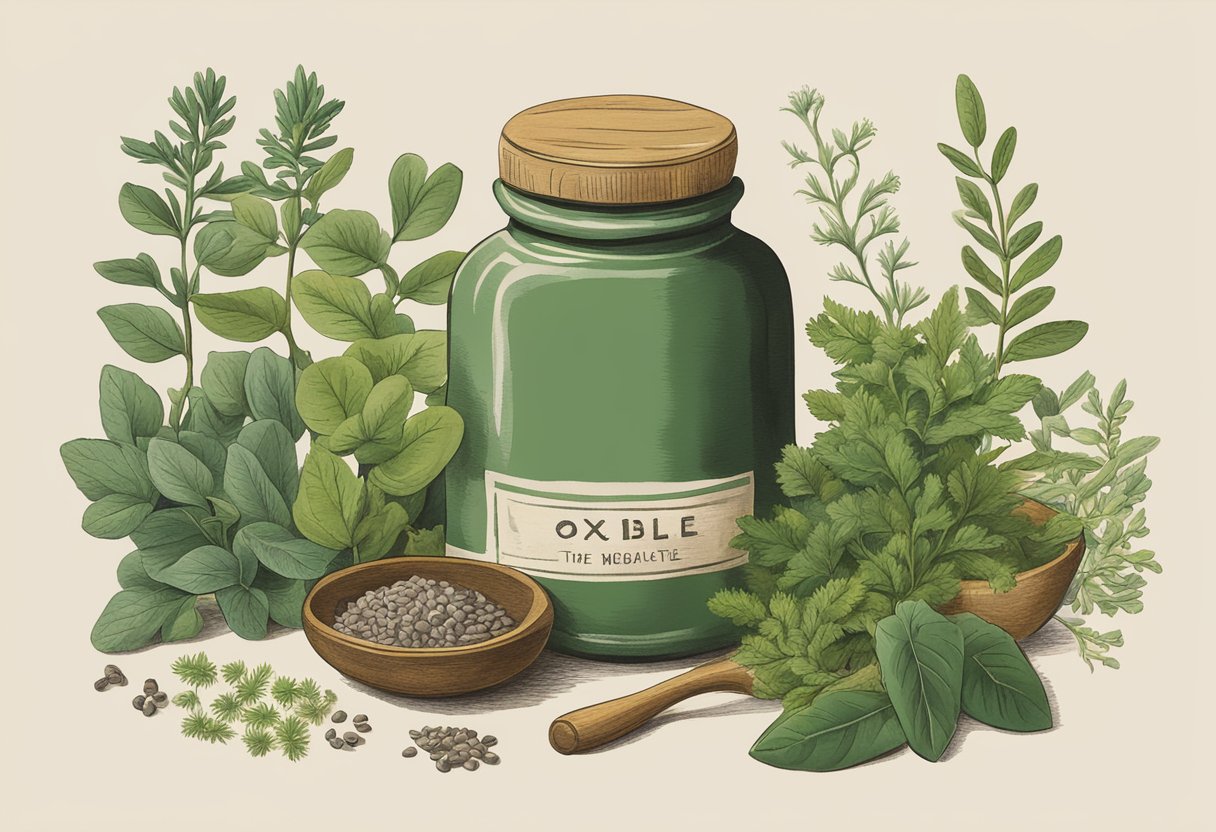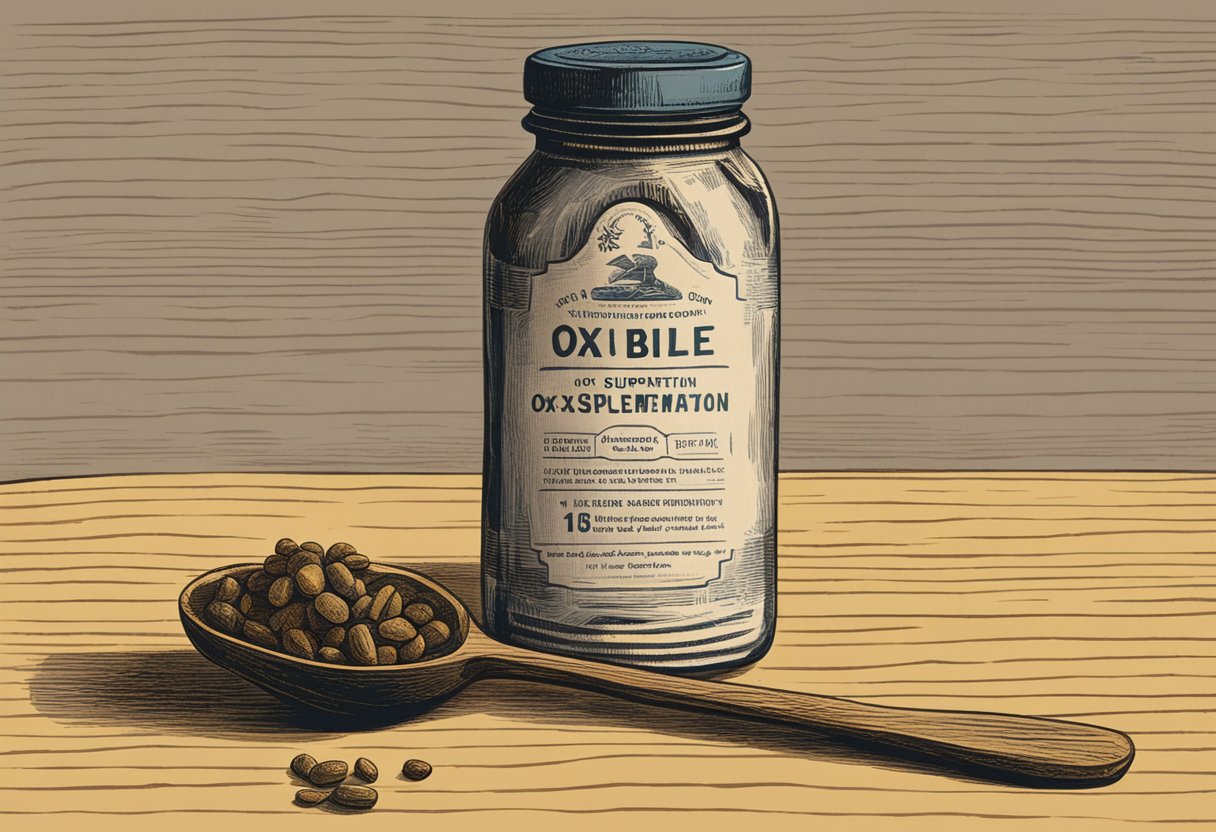Ox bile is a natural fluid produced by the liver and stored in the gallbladder of oxen. It plays a vital role in the digestive process, as it is responsible for breaking down fats in the diet so they can be absorbed by the body.
Similar in composition to human bile, ox bile contains bile acids which are critical for the emulsification of dietary fats.

In human healthcare, ox bile is available as a supplement and is often used to support the digestive system, especially in individuals who may have a bile deficiency or have had their gallbladder removed.
These supplements aim to aid in the proper digestion of fats and the absorption of fat-soluble vitamins. Ox bile supplements come in various forms, such as capsules, tablets, or powders, and they are designed to mimic the function of natural bile.
The therapeutic use of ox bile dates back to traditional practices, but its application has persisted into modern times.
Research into the specific impact of ox bile supplementation on digestion reveals its potential to assist the body in maintaining a healthy gastro-intestinal environment.
It's considered an ancillary digestive aid, indicating its supplemental role alongside the body's own bile production.
Understanding Ox Bile
Ox bile is a complex fluid produced by the liver, essential for digesting fats and for the absorption of fat-soluble vitamins. Its composition is rich in cholesterol, bile salts, and bile acids.
Composition and Production
Ox bile is synthesised in the liver from cholesterol and serves as a means for the body to excrete excess cholesterol.
It primarily comprises bile acids and salts, which are crucial for emulsifying fats in the digestive system. The bile salts, formed from bile acids, are instrumental in the digestion and absorption of dietary fats. Additionally, ox bile contains pigments, electrolytes, and water.
- Bile acids: Cholic and chenodeoxycholic acid are vital components.
- Bile salts: Glycine or taurine conjugated bile acids that aid in lipid digestion.
The liver cells secrete bile into tiny ducts that join to form larger ducts, eventually leading to the gallbladder where bile is stored and concentrated.
Role in Digestion
In digestion, ox bile has the primary role of emulsifying fats, which significantly increases the surface area available for enzyme action.
When fats reach the small intestine, bile is secreted into the intestine to assist in their breakdown.
This action is vital for the optimal absorption of fat-soluble vitamins, such as Vitamins A, D, E, and K.
- Emulsification of fats: Bile salts surround fats, breaking them down for easier digestion.
- Absorption: Facilitates the uptake of digested fats and vitamins into the bloodstream.
Bile not only enables the digestion of dietary lipids but also acts in the excretion of waste products from the liver into the intestine for elimination.
Health Benefits and Uses

Ox bile, used as a supplement, primarily aids in the digestion of fats and enhances the absorption of fat-soluble vitamins, which may be lacking in individuals with bile acid deficiencies. It is considered beneficial for those with digestive issues and can support overall liver health.
Digestive Support
Ox bile is a critical component in the management of digestive health, particularly in emulsifying and breaking down dietary fats in the small intestine.
It serves as a digestive aid, ensuring that fat digestion occurs efficiently.
Individuals with insufficient bile production may find ox bile supplements aid in reducing symptoms related to digestive issues like bloating and feelings of fullness.
Nutrient Absorption Enhancement
The role of ox bile extends to the enhancement of nutrient absorption.
It is especially crucial for the assimilation of fat-soluble vitamins (A, D, E, and K), which rely on adequate bile for proper uptake.
Without sufficient bile, one may experience deficiencies in these critical nutrients, leading to various health concerns.
Potential Therapeutic Effects
Ox bile may have therapeutic effects stemming from its components that exert antioxidant properties, potentially mitigating oxidative stress.
In Traditional Chinese Medicine, ox bile has been used to address certain health ailments. While its use is backed by historical precedence, contemporary research is needed to fully understand its range of therapeutic applications.
Ox Bile Supplementation

Ox bile supplementation is often considered by individuals facing challenges related to fat digestion due to insufficient bile production.
These supplements commonly contain bile salts and digestive enzymes which can aid in the emulsification and absorption of fats.
Who Might Need It
Individuals with malabsorption issues or those who have had a cholecystectomy (gallbladder removal) may require bile supplement to assist with the digestion of fats.
In such cases, healthcare professionals might recommend ox bile supplement to compensate for the decreased bile availability.
It is essential that one consults with a doctor before starting any supplementation to ensure its necessity and to prevent potential adverse effects.
How to Use Supplements
When using bile salt supplements, it is critical to follow the manufacturer's dosage instructions or a doctor's recommendation.
These supplements are generally taken immediately before or with meals to aid in the digestion process.
It is worth noting that over-supplement of bile salts can lead to digestive discomfort; hence, correct usage is key to achieving the intended benefits without side effects.
Safety and Considerations
When considering ox bile supplementation, safety is paramount, and one must be aware of potential side effects and interactions with other substances.

Potential Side Effects
Ox bile, when taken appropriately, can aid in the digestion of fats. However, side effects may occur, including:
- Gastrointestinal distress: Symptoms like diarrhoea or stomach cramps can manifest, especially if the dose is too high.
- Allergic reactions: Rare but possible, and may present as rashes, itching, or difficulty breathing.
If side effects are severe or persistent, it is crucial to seek advice from a doctor.
Interactions and Contraindications
Ox bile can interact with various medications and substances, and there are specific situations where its use is not recommended:
- Medication interactions: Ox bile may affect the absorption of fat-soluble vitamins and other drugs. Careful monitoring is required if combined with antacids or cholesterol-lowering drugs.
- Alcohol consumption: As alcohol may impair liver function, combining it with ox bile could increase the burden on the liver.
- Post-surgical considerations: For those who have had their gallbladder removed, ox bile can be beneficial but should be used under medical supervision.
- Liver health: Individuals with compromised liver function should exercise caution and consult with a healthcare provider before using ox bile supplements.
Comparative Analysis
This section presents a comparative analysis of ox bile, delving into its differences when compared to other digestive aids and the distinctions between animal-derived and synthetic bile salts.
Ox Bile vs. Other Digestive Aids
Ox bile is a natural substance that plays a crucial role in the digestion of fats, working effectively to break them down into smaller, absorbable particles.
It stands out from other digestive aids due to its high concentration of bile salts, which are instrumental in mitigating nutrient deficiencies and supporting individuals with digestive difficulties such as fatty liver disease or bile deficiencies.
Compared to standard digestive enzymes, ox bile specifically addresses conditions related to bile salt deficiency, offering a targeted approach for enhanced gastrointestinal function.
Ox Bile Benefits:
- Facilitates fat digestion
- Mitigates nutrient deficiencies
- Provides support for those with fatty liver disease and bile salt deficiency
Animal vs. Synthetic Bile Salts
When considering the origin of bile salts, there is a distinction between those derived from animal sources, like ox bile, and synthetic alternatives.
Ox bile contains ursodeoxycholic acid, a naturally occurring bile acid that helps reduce cholesterol absorption and dissolve gallstones.
Synthetic bile salts, while engineered to mimic the function of natural bile acids, may not provide the same spectrum of benefits.
They are particularly beneficial for those unable to produce adequate bile salts naturally, but may lack some of the additional components found in animal-derived products, which contribute to the overall digestive process.
Key Differences:
-
Animal-derived Bile Salts:
- Include a spectrum of bile acids native to the animal source
- Naturally contain ursodeoxycholic acid
-
Synthetic Bile Salts:
- Designed to resemble natural bile acids
- May not fully replicate the benefits of animal-derived bile salts
Scientific and Clinical Perspectives
Within the context of scientific and clinical study, ox bile, particularly its primary constituents known as bile acids, has garnered interest due to its critical role in bile acid metabolism, the elimination of toxins and waste, and maintaining liver health.
This section will endeavour to elucidate upon the current research and expert opinions regarding ox bile.
Research Overview
Researchers have consistently emphasised the significance of bile acids in facilitating fat digestion and absorption, alongside their involvement in the excretion of toxins and waste products from the body.
Studies indicate that bile acid metabolism plays a vital role in managing disorders like gallstones and various liver diseases, including fatty liver disease and non-alcoholic fatty liver disease (NAFLD).
Recent findings also suggest that ox bile supplements could potentially support optimal bile flow and prevent bile acid deficiencies in individuals lacking a gallbladder.
Expert Opinions
Medical professionals and researchers have acknowledged the potential therapeutic benefits of ox bile, particularly in patients with compromised bile production or secretion.
Doctors may consider the supplementation of ox bile for its bile acids to aid in digesting and metabolising fats in individuals suffering from liver diseases or after cholecystectomy.
However, they exercise caution, noting that the administration should be based on individual health needs and under clinical supervision, to avoid possible side effects or interactions with other medications.
Frequently Asked Questions
This section addresses common queries regarding ox bile, including its composition, collection process, potential risks, side effects, uses in health and medical fields, and dosage recommendations after gallbladder removal.
Can ox bile intake lead to an increased risk of cancer?
There is currently no conclusive evidence to suggest that ox bile intake is directly associated with an increased risk of cancer.
Research on the long-term effects of ox bile supplements requires further study to establish a clear link.
What are the primary components of ox bile?
Ox bile primarily consists of bile acids, cholesterol, and other substances like bilirubin and electrolytes.
These components are crucial for digestion, particularly in the emulsification and absorption of fats in the diet.
By what process is ox bile collected for supplement use?
Ox bile used in supplements is generally harvested from the gallbladders of cattle during the meat processing procedure.
The bile is then purified and potentially dried to prepare it for inclusion in dietary supplements.
What potential side effects might one experience with ox bile supplementation?
Possible side effects from ox bile supplementation may include gastrointestinal discomfort, such as bloating, indigestion, or an upset stomach.
It's important to follow dosage recommendations and consult a healthcare professional before use.
For what purposes is ox bile utilised in the medical and health fields?
Ox bile is utilised to aid digestion, especially for those lacking their own bile due to gallbladder removal.
It is also used in traditional medical applications to treat certain liver and gallbladder conditions.
How frequently should ox bile be taken post-cholecystectomy?
The frequency of ox bile supplementation post-cholecystectomy varies depending on individual medical advice.
Typically, doctors recommend taking it with meals to help the body digest fats, but specific dosage should align with healthcare professional instructions.
